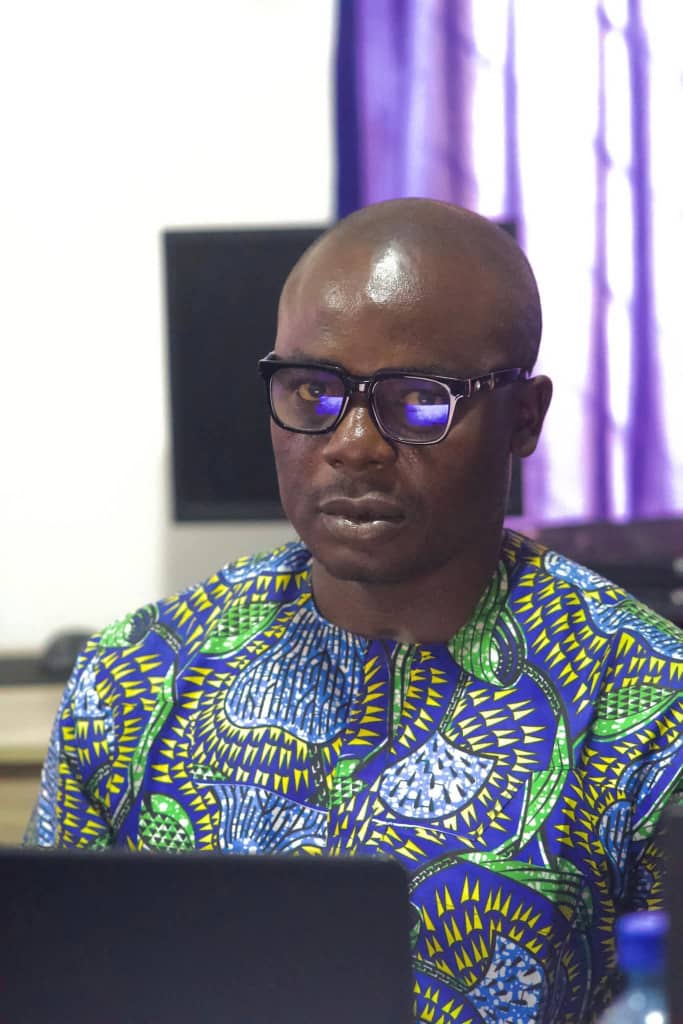When we talk about entrepreneurship in Nigeria, our minds often run to Silicon Valley start-ups, billionaire boardrooms, and corporate ladders. But long before MBAs and modern-day accelerators, the Igbo nation of Eastern Nigeria developed one of the most formidable, organic, and people-driven business incubation systems in Africa – the Igba Boi Apprenticeship system.
This system, often overlooked, has allegedly produced more millionaires than all the universities in the South-East put together. That is not an exaggeration, it is a fact borne out of history, markets, and survival instincts. And it is worth revisiting today – not only for the Igbo, but for every Nigerian, every African, and indeed every young person who is hungry for economic emancipation.
Yes, you heard me right. More millionaires than our universities. While thousands of graduates roam the streets clutching certificates that are now worth less than their laminated covers, the Igba Boi system continues to churn out empire builders, job creators, and industrial giants. And yet, society rarely gives it the recognition it deserves.
This is not just an Igbo story. This is a Nigerian story. An African story. A story of survival, resilience, and ingenuity.
From the Ashes of War: A Historical Overview
Let’s roll back the clock. The year was 1970. The Biafran war had just ended. The Igbo people were devastated. Their banks were liquidated, their businesses lost, their cities reduced to rubble. The federal government gave them a mere 20 pounds, no matter how much they had before the war. Twenty pounds to restart life.
Now imagine losing your entire life savings, your houses, your cars, your shops, your factories and then being told, “Here’s £20. Begin again.” Many would have folded, cursed the heavens, and accepted defeat. But not the Igbo.
Armed with resilience and an unbreakable entrepreneurial spirit, they turned to what they knew best: trade. The Igba Boi system, which had existed informally long before the war, became the tool for economic resurrection. Through this system, wealthy traders took on young apprentices, trained them, and eventually “settled” them with capital to start their own ventures.
From those ashes, empires were born.
The Beauty of the System: The University of the Market
Let us be blunt: Igba Boi is the most successful indigenous entrepreneurial model Africa has ever seen.
It is, in fact, Africa’s MBA without the certificate. No loans. No tuition. No nepotism. No entrance exam. The entry requirement is simply loyalty, patience, and a willingness to learn.
While our universities churn out graduates who know how to recite theories of supply and demand but cannot run a kiosk profitably, Igba Boi produces real-life business practitioners who can turn 20 naira into 20 million with discipline, street intelligence, and hard work.
And what makes it even more beautiful? It is built on trust and community. Masters take in apprentices, often from their hometowns, not because they expect instant profit, but because they believe in community upliftment. After years of training, the apprentice is “settled” with cash, goods, or even a shop and he start his own business.
That is mentorship. That is entrepreneurship. That is empowerment.
Case Studies: The Billionaires Igba Boi Produced
If you doubt the power of Igba Boi, look at Nnewi. This small town in Anambra State has been nicknamed the “Japan of Africa.” Why? Because it is home to some of Nigeria’s most successful industrialists, men who started as apprentices in the Igba Boi system.
Take Chief Cletus Ibeto, founder of the Ibeto Group. He started as a spare parts dealer in Nnewi after being mentored by a trader. Today, his conglomerate spans cement, oil, hospitality, and automotive industries.
Consider Innocent Ifediaso Chukwuma, better known as Innoson, the man behind Innoson Vehicle Manufacturing, Nigeria’s first indigenous car manufacturer. Innoson started as an apprentice in the motorcycle spare parts business. Today, he builds cars.
The story repeats itself in Alaba International Market, the electronics hub of West Africa. Many of the multi-millionaires there began as apprentices sleeping on shop floors, hawking goods for their masters, and enduring years of discipline. Today, they own plazas worth billions and control the flow of electronic goods across West Africa.
These men didn’t get MBAs from Harvard. They didn’t attend Lagos Business School. Their degree was Igba Boi. Their classroom was the market. Their professors were their Ogas. And their final exam was settlement.
Government Interference: Blessing or Curse?
Recently, the Anambra State government announced moves to regulate the Igba Boi system. They argue that regulation will protect apprentices from abuse, guarantee settlements, and modernize the system. On paper, this sounds noble. But critics ask: will government regulation kill the very spirit that makes Igba Boi work?
Let’s be honest: governments in Nigeria don’t have the best track record when it comes to managing successful systems. They regulate the banking sector, yet banks collapse. They regulate oil, yet the sector bleeds corruption. Will they regulate Igba Boi only to choke it with bureaucracy?
What Igba Boi needs is not suffocating laws, but supportive frameworks. Apprenticeships should have simple contracts enforceable by law. Settlements should be legally binding. The system should be recognized as an official form of business education. But we must avoid turning it into another government cash cow with taxes and levies.
Lessons for Other Tribes: Don’t Just Copy, Adapt
This is where it gets controversial: why should Igba Boi remain an Igbo thing? Why should Hausa boys keep waiting for white-collar jobs? Why should Yoruba youths rely only on formal education? Why should Urhobo, Tiv, Efik, Ijaw youths not build their own models?
Nigeria is groaning under 33% unemployment, with youth unemployment far worse. Yet, right in front of us, there is a model that works a model that takes unskilled teenagers and turns them into millionaires within a decade. Other ethnic groups don’t have to copy the Igbo wholesale. They can adapt it to their strengths.
The Yoruba can structure it around their creative industries; film, fashion, and arts. The Hausa can build around agriculture and trade. The South-South can leverage oil servicing, fisheries, and technology.
What matters is mentorship, apprenticeship, and settlement.
The Orientation Behind Igba Boi: Ubuntu in Action
At its heart, Igba Boi is not capitalism in the Western sense. It is not individualism. It is Ubuntu, I am because we are.
When an apprentice succeeds, the master is celebrated. When the master settles a boy, the entire village rejoices. When the boy becomes a master, he too takes in apprentices, continuing the cycle of wealth transfer.
This is not just business. This is cultural orientation. It is community-driven economics, where wealth circulates, knowledge circulates, and opportunities circulate.
Compare this to the Western model, where mentorship often comes with hefty consultancy fees, or universities that burden students with debt. Igba Boi democratizes opportunity.
The Flaws: Yes, Let’s Be Honest
But let us not romanticize the system. It is not perfect. Many apprentices have been cheated, promised settlement that never came. Some Ogas exploit their boys as unpaid labor, never intending to empower them. Some apprentices abandon their Ogas prematurely, lured by quick money or peer pressure.
This is why modernization is necessary. Apprenticeships should be documented. Settlements should be enforceable. Apprentices should receive at least some stipend during training. Digital literacy should be added to the training, so that the next Igbo trader isn’t just dominating Alaba Market but also Amazon Marketplace.
Why Entrepreneurs Should Embrace It
To the big men reading this: instead of building wealth only for your children, adopt apprentices. Mentor them. Empower them. When you leave this world, your true legacy will not be the number of houses you built, but the number of lives you lifted.
The Igba Boi system shows us that entrepreneurship is not about selfish accumulation but about institutionalizing generosity.
Why Youths Should Key Into It
To our youths, wake up. Not everyone will work in Shell. Not everyone will become a banker. Not everyone will “blow” through music or football. Many of you are wasting your lives on Yahoo Yahoo, on TikTok fame, on quick money. But Igba Boi offers you something more sustainable, a path to wealth that may not be instant, but is enduring.
You want to be rich? Find a mentor. Serve. Learn. Be patient. Build. Then rise.
Final Word: Igba Boi as Nigeria’s Revolution
If Nigeria is serious about fighting unemployment, we don’t need another World Bank loan. We don’t need foreign investors to rescue us. What we need is already here. What we need is Igba Boi scaled up.
Imagine if every ethnic group institutionalized apprenticeship. Imagine if every successful trader, artisan, farmer, or entrepreneur adopted 10 apprentices, trained them, and settled them. In 10 years, unemployment would drop. In 20 years, poverty would shrink. In 30 years, we would have a new generation of African billionaires.
Igba Boi is not just an Igbo system. It is not just an economic system. It is a revolution waiting to be embraced.
So let the conversation begin. Let the debates rage. But let no one ignore the truth: Africa’s most powerful MBA is not in a classroom. It is in the market. And its name is Igba Boi.
This is my Monday message. A call to reflection, to action, and to reorientation.
Ewere Okonta is the CEO of EOB Media. He writes from the Department of Business Administration, University of Delta, Agbor


